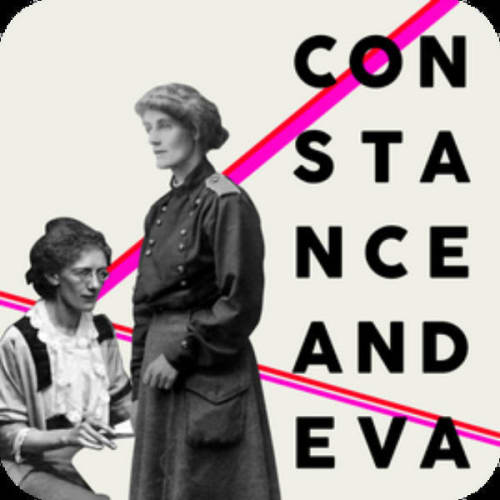The sisters Constance and Eva took part in some of the most important social struggles of the late 19th and early 20th century.
Constance Markievicz supported workers during the 1913 Dublin lockout and took an active part in the 1916 uprising against the British occupation of Ireland.
Eva Gore-Booth not only campaigned for women’s rights in workplaces; she also fought for women’s suffrage and became part of the anti-war movement against the First World War.
Their lives helped shape the radical politics of today.
However, what emerges from Kimberly Campanello’s play Constance & Eva seems more like a rather eccentric research seminar or a workshop presentation of material towards some future theatre project.
The form of the show is constantly distracting from the content and that content is fragmentary. It gives us only a slim idea of the sisters and barely any idea of the forces that shaped them or their social context.
It begins with a voice-over company discussion about the way they can convey the characters “without it being clunky.”
They then make it feel very clunky. A woman in jeans and T-shirt steps up to a mike stand to tell us she will play Eva. Another does the same at the other end of the traverse performance space saying she will play Constance.
To emphasise they are becoming characters they take off their outer clothes under a spotlight and replace them with different clothes. Eva (Hannah Berry) exchanges T shirt and jeans for a skirt and blouse. Constance (Charlotte Gallagher) puts on a uniform
But wearing what might be period clothes seems to be the extent of their performance in character. The rest of the show consists mainly of random reflections on the two women.
Dressed in role, they go to a cassette player at the side of an end rostrum, making it difficult for all audience members to see, and they play a series of taped voices of people consulted in research.
The reason they play cassettes isn’t the lack of a tec. He plays other recordings by use of more modern technology. Neither could this sequence be an attempt to create a sense of period since Constance and Eva were long dead before cassettes were invented.
There are a lot of taped voices in this short, fifty-minute performance. They even play us the voice of the director reading a poem by W B Yeats.
I wondered if they were preparing a radio documentary.
It is a fairly static show but the actors do occasionally move. They even briefly venturie onto the traverse performance space.
As film footage of women going to work is shown on overhead screens, Eva wanders along the traverse walkway saying something through a very stylish megaphone she points to the ground.
I couldn’t hear what she said but again found myself puzzled by the exercise, especially as activists are unlikely to take megaphones to speak outside workplaces unless they are organising a picket.
Later, we are told that Eva and Constance tried to communicate telepathically and on one occasion Eva had the urge to go to Euston Station where she bumped into and hugged Constance who was being transported to prison.
The story told, the actors rush to the middle of the traverse for a very quick bear hug followed by an intense stare at each other as if they were strangers. It was a very odd, unconvincing and unnecessary visual. We could imagine a hug and it didn’t look like the one we were shown.
There is a moment when Charlotte Gallagher as Constance very movingly speaks the words of a letter that was sent to Eva. It is a well performed sequence.
Unfortunately, the play mostly lacks drama and has difficulty finding any interesting way of conveying its not very exciting research material.
They finish the show under the spotlights by changing back into their ordinary clothes. I have no idea why. Perhaps they needed to leave the theatre quickly.
It is the peculiar form of this performance, often slow and awkward, that will be remembered not the brief snippets we get of these two remarkable women.
